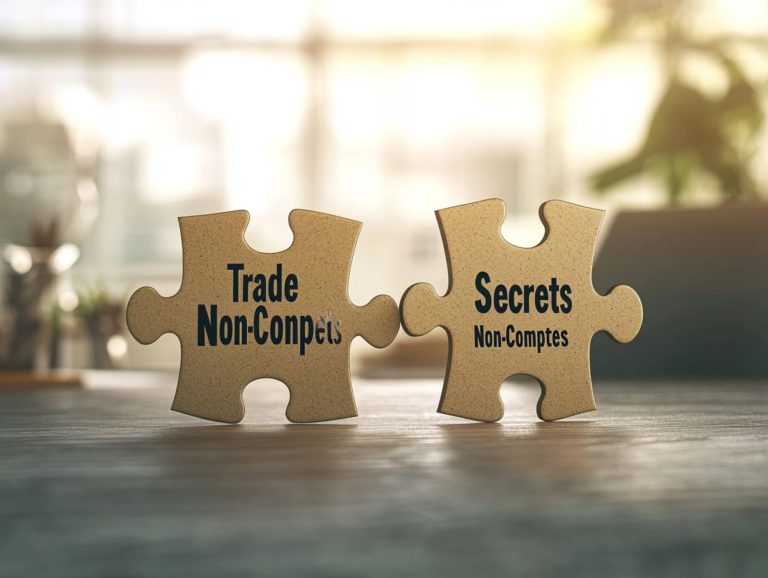5 Countries with Strong Trade Secret Laws
In the global economy, protecting your intellectual property is vital. This is especially true for trade secrets.
This article explores five countries known for their strong trade secret laws. They are the United States, China, Japan, Germany, and South Korea.
It outlines what trade secrets are and why they hold significant importance. You ll discover the key elements that make trade secret laws effective and how these nations work to safeguard confidential business information.
The article discusses penalties for violations. It also provides insights on how to protect your trade secrets in these regions. Understanding these factors can give you a competitive edge in international markets.
Contents
- Key Takeaways:
- 1. United States
- 2. China
- 3. Japan
- 4. Germany
- 5. South Korea
- What Are Trade Secrets and Why Are They Important?
- What Are the Key Elements of Strong Trade Secret Laws?
- How Do These Countries Protect Trade Secrets?
- What Are the Penalties for Violating Trade Secret Laws?
- How Can a Business Protect Their Trade Secrets in These Countries?
- What Are the Advantages of Doing Business in Countries with Strong Trade Secret Protection?
Key Takeaways:
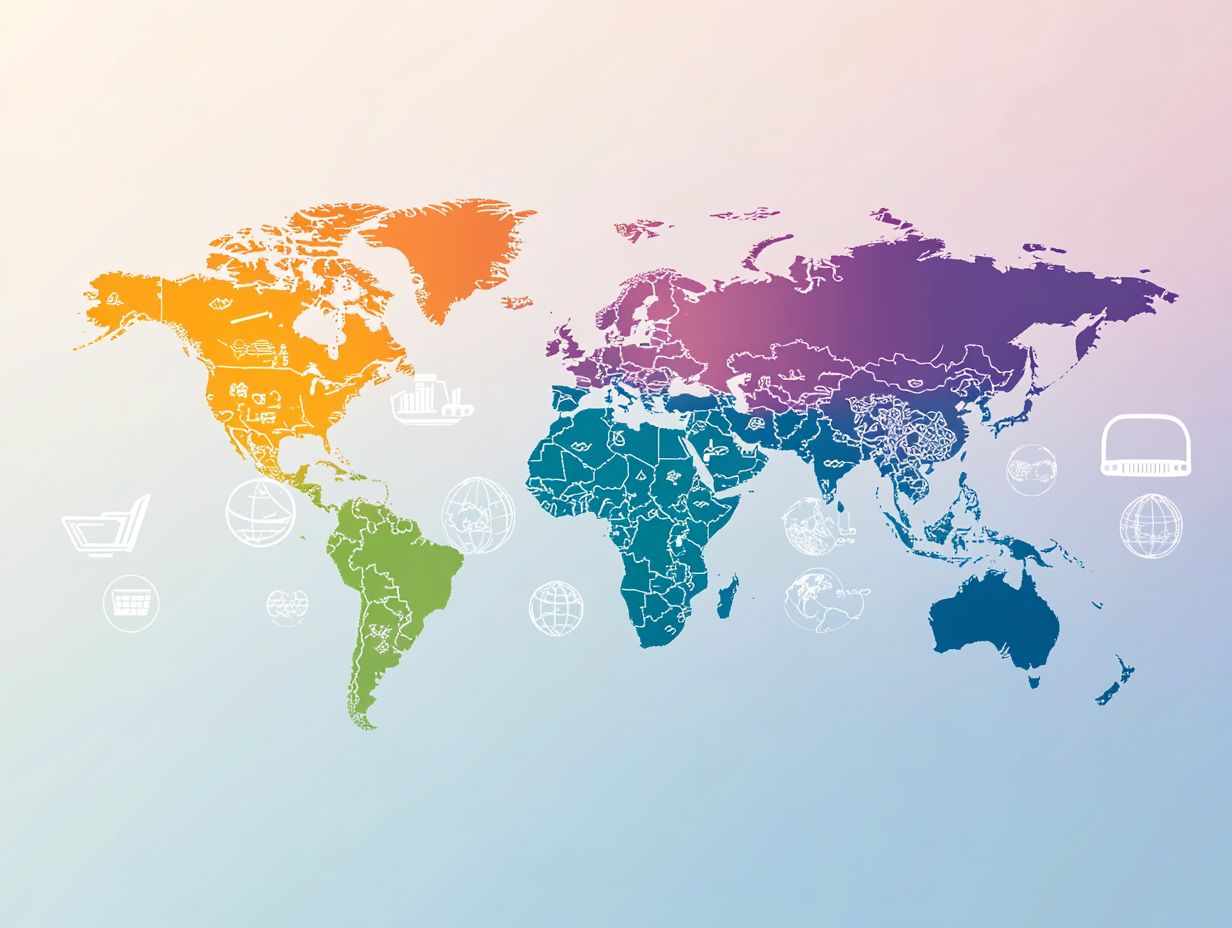
United States, China, Japan, Germany, and South Korea have strong trade secret laws that protect businesses’ confidential information, making them among the countries with the most effective IP enforcement.
Strong trade secret laws include identifying and protecting confidential information. They also provide legal options for dealing with theft or misuse.
These countries protect trade secrets through a combination of laws, regulations, and enforcement agencies. Penalties for violating trade secret laws can include fines and imprisonment.
Businesses can safeguard their trade secrets by implementing strict confidentiality agreements, limiting access to confidential information, and monitoring for potential breaches. Doing business in countries with strong trade secret laws provides advantages such as increased protection for intellectual property and a more secure business environment.
1. United States
The United States has crafted a formidable legal framework designed to protect trade secrets. These secrets are essential components of intellectual property (IP) and carry immense commercial value for businesses. Look at household names like Coca-Cola, which has famously guarded its proprietary formulas and trade knowledge with unwavering resolve.
At the heart of this framework is the Uniform Trade Secrets Act (UTSA), adopted by most states to ensure a consistent approach to defining, identifying, and safeguarding trade secrets.
To keep proprietary information secure, companies often employ a range of best practices, including:
- Utilizing non-disclosure agreements (NDAs)
- Conducting thorough employee training
- Implementing stringent security measures
Enforcement actions are vital. They deter potential infringers and help uphold the integrity of confidential materials. Landmark cases, such as the 1997 E.I. du Pont de Nemours & Company v. Christopher, illustrate the serious legal consequences of trade secret theft and highlight the critical need for vigilant protection and enforcement.
2. China
China has made remarkable progress in establishing comprehensive trade secret laws designed to protect proprietary information and promote economic interests. This careful balancing act addresses the need for competitive intelligence while enforcing the robust regulatory measures outlined in the Civil Code of the People’s Republic of China.
This evolution reflects the demands of an increasingly competitive global marketplace, where safeguarding intellectual property is essential for innovation and overall economic vitality.
In contrast to U.S. laws, which often lean towards a more adversarial and litigation-driven approach, Chinese legislation typically favors amicable resolutions and administrative remedies before turning to the courts.
Recent high-profile enforcement actions underscore a growing commitment to combatting IP theft. Government agencies are intensifying their crackdown on industrial espionage and enhancing penalties for violations. Moreover, cultural attitudes in China are gradually shifting. Businesses are beginning to grasp the long-term value of protecting their trade secrets, creating an environment where intellectual property rights are increasingly respected and diligently upheld.
3. Japan
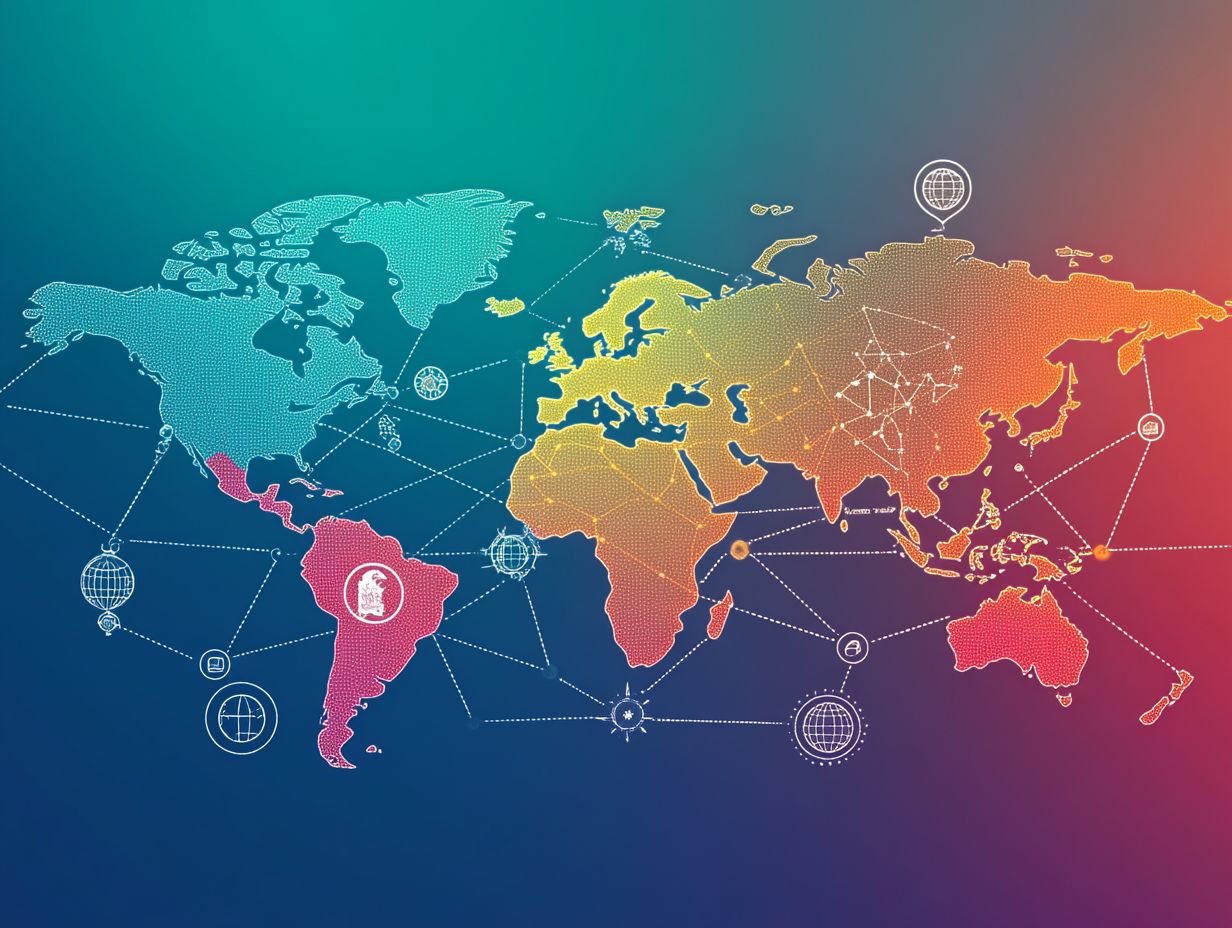
Japan’s trade secret law emphasizes confidentiality through specific employee obligations and strict agreements. These are vital for maintaining your competitive edge in innovative industries, especially manufacturing.
This legal framework places significant responsibility on employees, often requiring signatures on confidentiality clauses that outline duties to protect sensitive information.
Major corporations like Toyota and Sony implement rigorous training programs to educate employees on the importance of safeguarding proprietary data.
Japan s cultural norms prioritize collective success and loyalty. This encourages compliance with these agreements.
This blend of legal expectations and cultural values helps companies shield their trade secrets from industrial espionage, enabling them to maintain leadership in the global marketplace.
4. Germany
Germany boasts a strong trade secret law that protects businesses against unfair competition. This legal framework helps safeguard proprietary information, ensuring a competitive edge in a demanding market.
The Trade Secrets Act defines what qualifies as a trade secret and outlines essential protective measures. Violations can lead to serious penalties, including compensation claims and fines, acting as strong deterrents against unauthorized disclosures.
Understanding these regulations is crucial for both domestic and international firms. Non-compliance can have dire consequences, affecting operations and reputation.
Germany’s trade secret protections align with broader EU directives, adding legal stability and making the country appealing for businesses eager to innovate and compete securely.
5. South Korea
South Korea’s commitment to protecting trade secrets is evident in its focus on non-disclosure agreements and strong security measures. This is particularly important in research and development sectors.
This approach nurtures innovation and aligns with international regulations, such as those in the Agreement on Trade-Related Aspects of Intellectual Property Rights (TRIPS).
Leading companies in technology and pharmaceuticals invest in comprehensive employee training programs that emphasize confidentiality.
Through rigorous internal audits and strict security protocols, these firms ensure sensitive data remains secure, enhancing trust with partners and consumers.
Such practices demonstrate South Korea’s proactive measures to maintain a competitive edge in the global market.
What Are Trade Secrets and Why Are They Important?
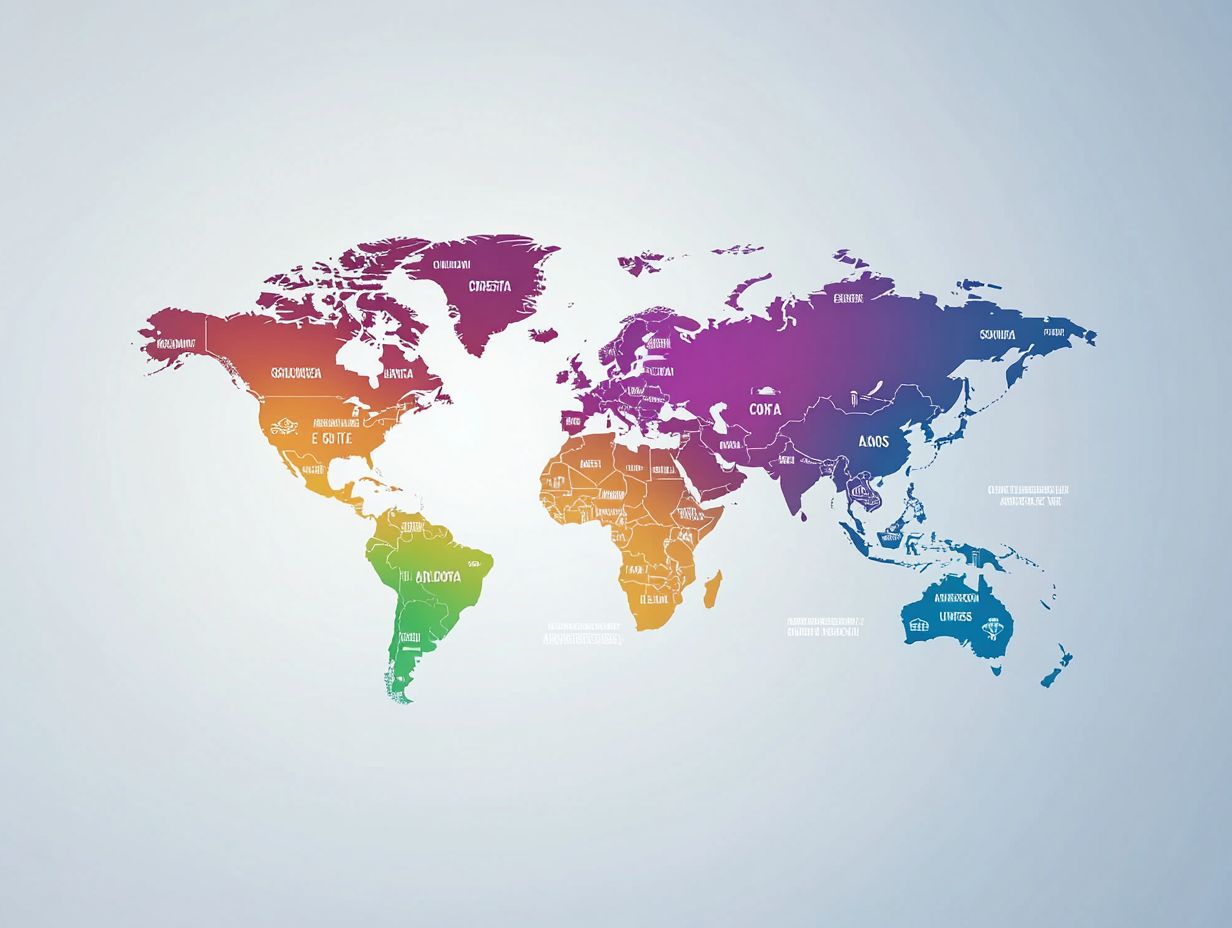
Trade secrets include valuable proprietary information like formulas, processes, and business strategies that provide a competitive edge and possess significant commercial value. Protecting these secrets is crucial for effective intellectual property management.
These assets often entail confidential techniques, such as chemical formulas in pharmaceuticals or intricate manufacturing processes that enhance product quality and efficiency.
For example, a specific method for synthesizing a key drug could lead to groundbreaking treatments, positioning your company ahead of rivals in the life sciences sector. Similarly, a unique genetic modification technique in agricultural biotechnology can yield crops that are more productive while reducing environmental impact.
Trade secrets are vital; they drive innovation and significantly contribute to your business’s success, allowing you to thrive in competitive markets.
What Are the Key Elements of Strong Trade Secret Laws?
Strong trade secret laws are defined by essential elements like a clear judicial definition of what constitutes a trade secret.
They also establish stringent obligations for employees to uphold confidentiality. Effective protection strategies ensure proprietary information remains shielded from the public domain.
These laws provide a framework for legal protection. They also highlight the responsibility of individuals and organizations to safeguard sensitive information.
Enforcement mechanisms, such as civil lawsuits and court orders, are important in deterring unauthorized disclosures. The reasonable person standard allows courts to assess what a typical individual would regard as confidential, adding common sense to legal interpretations.
Jurisdictions like California and New York showcase significant case law exemplifying these components. They illustrate diverse approaches to uphold trade secrets while balancing the rights of both employers and employees.
How Do These Countries Protect Trade Secrets?
Different countries utilize a variety of methods to protect trade secrets, including trade secret laws, international regulations, enforcement actions, and administrative measures.
These protections are often enhanced by confidentiality clauses embedded in contracts.
The effectiveness of these protective mechanisms can vary dramatically from one region to another. Some nations have strong legal frameworks and strict enforcement strategies, while others struggle with inconsistent law application.
The European Union boasts a comprehensive approach, fortified by directives that ensure high levels of trade secret protection. This contrasts sharply with jurisdictions where such protections are less organized.
International treaties, like the Trade-Related Aspects of Intellectual Property Rights (TRIPS), play a crucial role in shaping local legislation. They compel countries to align their regulations with global standards.
This creates a complex interplay where local laws are influenced by international norms, illustrating the balancing act that countries must navigate to effectively safeguard their intellectual assets.
What Are the Penalties for Violating Trade Secret Laws?
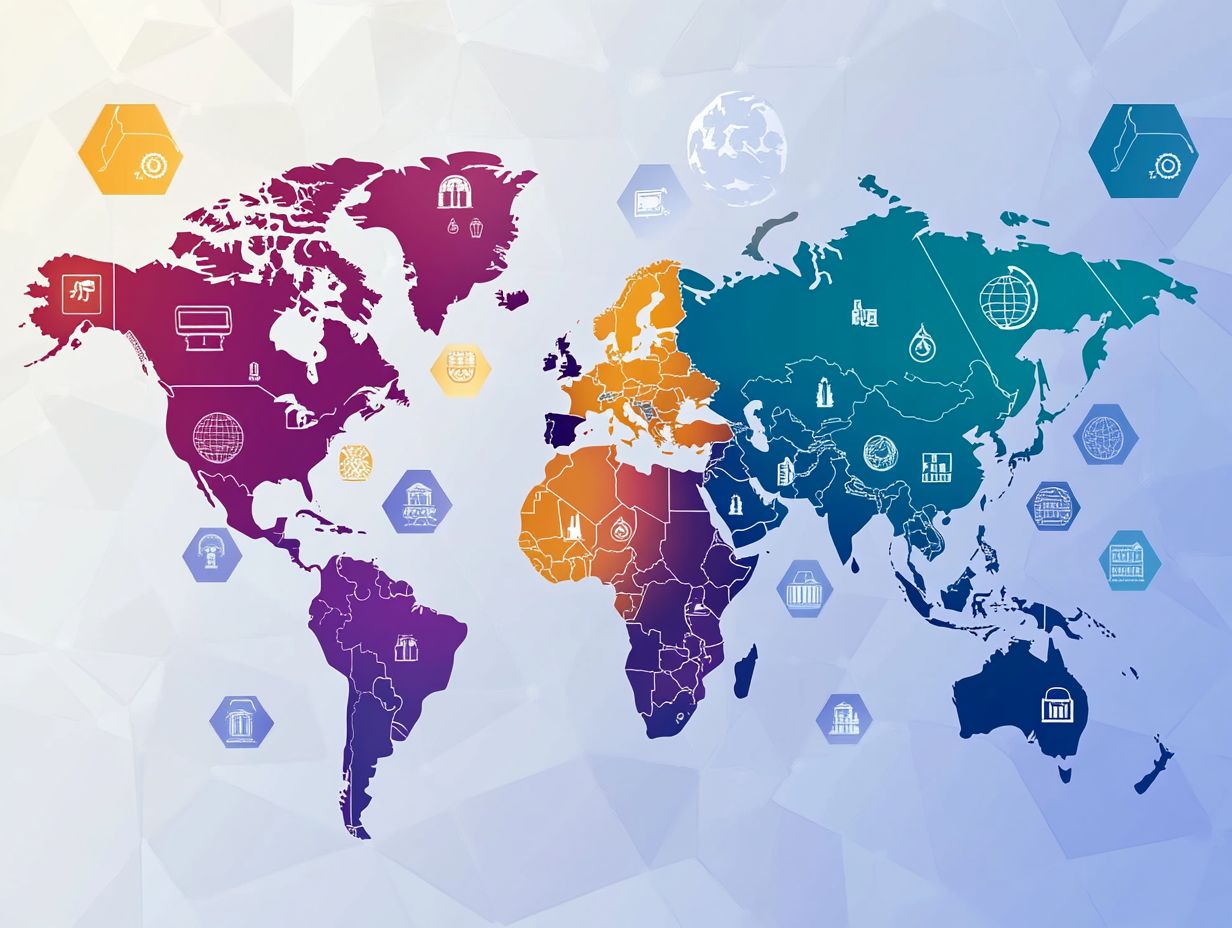
Violating trade secret laws can lead to severe penalties, including monetary damages, court orders, and even potential criminal charges. These penalties depend on your jurisdiction and the civil code provisions governing trade secret protection.
In the United States, for example, the Defend Trade Secrets Act offers civil remedies and allows for criminal prosecution. This showcases a strong commitment to safeguarding intellectual property.
While countries like China have improved their trade secret laws, they still face criticism for enforcement gaps.
A notable example occurred when a major technology firm faced litigation over trade secrets, resulting in a staggering $1 billion penalty in the U.S. This situation highlights how differing international standards can create significant disparities in penalties and enforcement.
How Can a Business Protect Their Trade Secrets in These Countries?
Act now to protect your trade secrets with effective strategies. Businesses can implement protective measures like confidentiality agreements and strict employee contracts.
It is also essential to train employees on their specific confidentiality obligations. Fostering awareness about proprietary information is vital.
Developing strong security protocols such as limiting access to sensitive data and using encryption technologies can significantly reduce risks.
Leveraging legal frameworks tailored to each country’s regulations helps establish a solid defense against potential breaches. By consistently reviewing and updating security measures, businesses can stay ahead of threats and maintain their competitive advantages.
What Are the Advantages of Doing Business in Countries with Strong Trade Secret Protection?
Operating in countries with strong trade secret protection provides significant advantages. These include heightened security for your intellectual property and refined business models.
When you feel secure knowing your unique ideas are protected, you re more inclined to invest time and resources into research and development. This environment nurtures creativity and attracts eager investors.
A clearly defined legal framework for trade secrets enhances your competitiveness, allowing your firm to excel in the global market. This sparks a wave of exciting new products and services, ultimately benefiting consumers and driving economic growth in those regions.
Frequently Asked Questions
What are the top 5 countries with strong trade secret laws?
The top 5 countries are:
- The United States
- Japan
- South Korea
- Germany
- China
These nations have effective systems in place to protect trade secrets.
Why are these countries considered to have strong trade secret laws?
They have specific legislation and policies designed to protect confidential business information. Their well-established legal systems can effectively enforce these laws.
What types of information are considered trade secrets?
Trade secrets can include:
- Customer lists
- Manufacturing processes
- Financial information
- Marketing strategies
How do these countries protect trade secrets?
Protection measures include:
- Legal action against theft or misuse of confidential information
- Non-disclosure agreements
- Strict penalties for violations
Are there any differences in trade secret laws among these countries?
While they all have strong laws, specific regulations and procedures may vary. Companies should understand each country’s nuances when conducting business and sharing trade secrets.
What should companies do to protect their trade secrets when doing business in these countries?
To safeguard trade secrets, companies should:
- Implement strong confidentiality agreements
- Limit access to sensitive information
- Conduct thorough background checks on potential partners or employees
Staying updated on changes in trade secret laws is also crucial.
Protect your innovations today and watch your business thrive!

